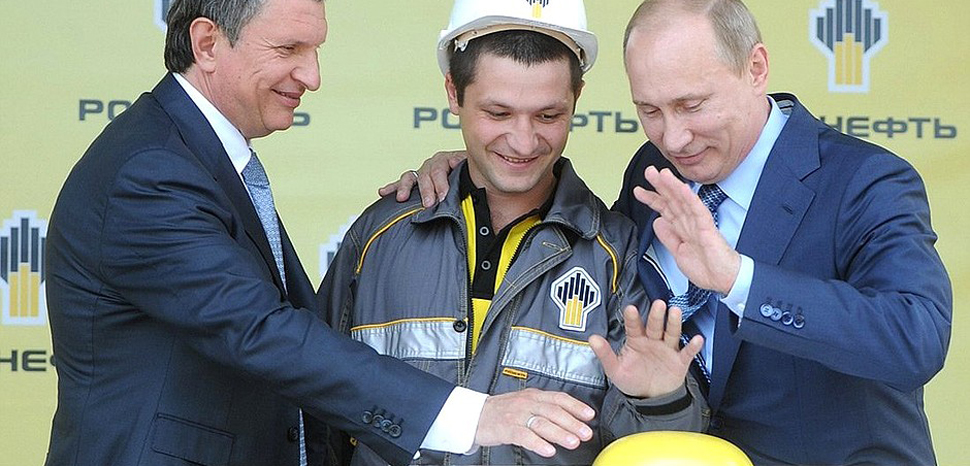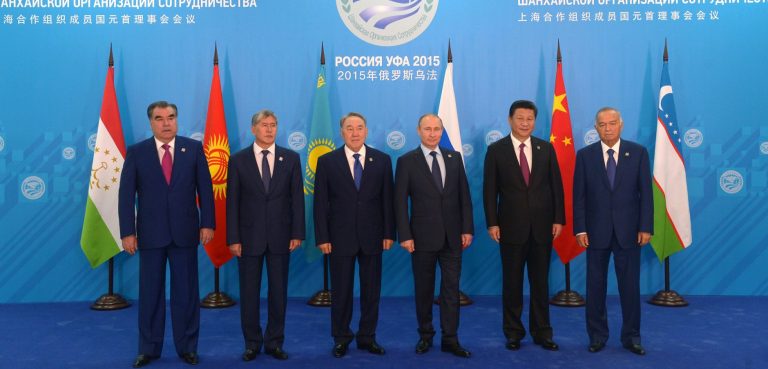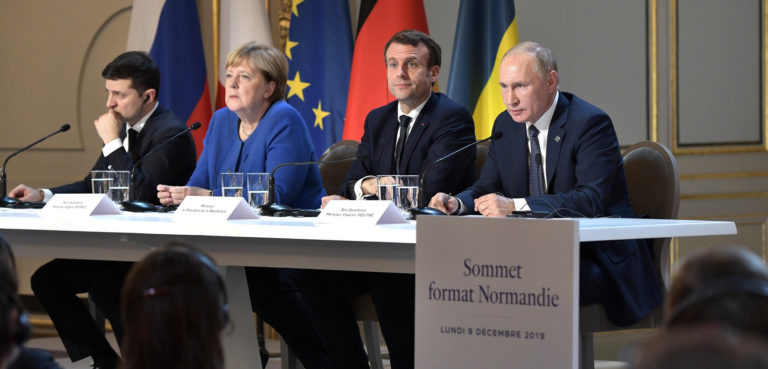The war in Ukraine has lasted for three months and much ink has been spilled on the crisis since then. Both Russia and Western countries have been playing tit-for-tat for a while, ensuring that the war far is from being de-escalated. Recently, the G7 has agreed to be “committed to phasing out or banning the import of Russian oil.” This step is expected to inflict damage on the Russian economy, forcing them to compromise on the Ukraine crisis. Nevertheless, whether the banning of oil from Russia actually works is questionable at the moment.
At first glance, there has been no agenda on how to phase out or ban the import of Russian oil at this G7 meeting. Indeed, banning oil imports from Russia is a strategic issue which entails further concerted efforts from all of the G7 countries. That said, they must act on a clear-cut agenda to achieve their goals on crippling Russian economy. The European Commission President, Ursula von der Leyen, said that the EU will phase out Russian oil in an orderly fashion. Granted, EU countries and the U.S. are cognizant of the costs of this strategy. However, in the latest meeting, leaders just came up with a relatively vague statement without concrete steps to realize their goal of establishing a solid timeline for the phase out of Russian oil. G7 European countries are highly reliant on Russian oil and gas, so they cannot free themselves from Russian supply in the short-term. More crucially, given this high level of dependence, G7 and Western countries more generally must answer two questions when considering a ban on Russian oil: What are the potential alternative sources for Russian oil? And: What actors should be involved in the grand plan?
Next, this scheme would pose a threat to G7 energy security in several ways. Any restriction from the G7/EU would impact global oil prices, which have already hit a new record, and further threaten their energy security. Accordingly, as Russia is among the world’s largest energy producers, the phasing out of Russian oil would further disrupt global supply, henceforth making oil prices over the longer term. When the price soars, Western countries will inevitably face difficulties, at least over the short run, in accessing affordable and stable energy supply. Based on their level of development, G7 and the West in general are able to develop alternative energy sources to substitute Russian oil, but this will take a very long time and huge amount of investment. In the foreseeable future, the G7, especially Germany, France, and Italy would suffer due to their high dependence on Russia oil, and as such these stats must figure out solutions to fill the gap, together with investing in new types of energy. Meanwhile, Russia is still able to access non-G7 markets with less restrictions, and may ultimately suffer less from the G7 ban. Indeed, G7 countries do not even consist of a majority of Russian exports, and most of them are more reliant on Russia than the other way around. In this sense, the benefits of banning Russian oil would be uncertain for G7: the short-term negative impact is potentially enormous and the long-term payoff of the plan is ambiguous at best.
Looking more broadly, the energy security impact of banning Russian oil entails a cost for global security, both economic and political. Economically, there are two immediate consequences from the disruption of oil supply from Russia. First, the shock in global oil supply after the G7’s phasing out of Russian oil, without a doubt, would bring about a shortage of energy for economic activities. Specifically, oil is the backbone of the global economy. Without sufficient and stable oil supplies, transportation and manufacturing costs will significantly rise. Consequently, global trade and investment activities will be disrupted, causing harm to the global economy in general and lower-income countries in particular. These countries not only have difficulty in accessing alternative energy sources given their tight budgets, but also suffer the most from the disruption of global economy due to their dependence on foreign direct investment. Second, the G7’s banning of Russian oil may be a prelude for tit-for-tat economic “attacks” from both sides, which is bad for them and for the whole global economy. Since the G7 and Russia are all major economies, these economic skirmishes can trigger economic instability globally. For instance, Russia and the G7 could reciprocally impose sanctions, restrictions, and embargoes on each other, bringing mutual trade to a halt and making it harder for the world economy to get back to pre-pandemic levels.
Politically, banning oil from Russia may not result in a good deal for the G7. At the end of the day, what the G7 wants from Russia is an agreement ending the war in Ukraine and over the longer term, a compromise from Moscow. It is uncertain whether the G7’s most recent action on Russian oil exports can help achieve these goals. Since 2014, Western countries led by the US have been imposing a variety of sanctions on Russia, ranging from oil, finance to arms, to name a few. Notwithstanding their effort, the Putin regime still survives, and is still threatening global peace and security. Hence, there is no guarantee that the phasing out of Russian oil this time around would lead to a different result. Moreover, as noted previously, this G7 action will inflict damage not only on Russian but also on the wider global economy, including G7 economies themselves. At this point, the G7’s banning of oil might be counter-effective. Accordingly, when Russia survives G7 “attacks” only to see other countries suffer economic collateral damage, Russia’s own anti-West narratives might be validated, pushing these countries away from the West. Besides, Russia can use oil as its political card to gain favor on the Ukrainian issue from non-G7 countries which are heavily dependent on Russian supply, particularly by offering them cheaper oil deals. Given Russia’s abundance of oil, it is able to sell a low price over long periods of time. Against this backdrop, the G7 and the West may lose their support in besieging Russia economically and politically. Thus, it is questionable whether the G7 can achieve a favorable political settlement with Russia by phasing out Russian oil.
Nonetheless, the banning of Russian oil could be effective, because the above challenges are not insurmountable if the G7 can act in accordance with following steps. First and foremost, they must come up with a clearer agenda. In order to realize their goals of phasing out Russian oil, they must have concrete steps on what they would do, from developing alternative energy sources to determining a phased drawdown of Russian oil and, in particular, determining what they would do in each phase to cushion the resulting supply shock. Only when G7 countries have such a comprehensive action plan can they realize their goals with the minimum cost on themselves. In addition to this, the G7 must acknowledge other actors’ roles in implementing their plan, including but not limited to firms and international organizations. Because Russia is a great power and plays a remarkable role in global politics and the economy, it is not easy to isolate it immediately without negative impacts on the world stage. More importantly, Russia is a member of many major international organizations, and a lot of multinational companies are doing businesses in Russia; these actors are indispensable in any strategies against Moscow. Gaining support from them, the G7 can form a more close-knit coalition of states and non-states members to counter Russia, which paves the way for further actions to enervate Russia. Simultaneously, the G7 has to take into account the role of developing countries in their plans regarding Russia. It is inevitable that developing states would bear tremendous costs from the conflict between Russia and the West. Taking into account these countries, the G7 would attempt to help them overcome the negative impacts of a ban on Russian oil through various ways, including transferring advanced energy technologies to help them less dependent on Russian oil and/or fostering foreign direct investment into these countries.
In a nutshell, the most recent action of G7 is necessary in the context of increasing threats from Russia. Yet, at the current stage, the plan of phasing out Russian oil is not strategically viable, evidenced by the challenges presented above. Despite its difficulties, this grand scheme can be successful if G7 makes it more full-fledged by figuring out complementary instruments and relevant partners. If the G7 can further develop its strategy on how to get rid of Russian oil, they will be able to achieve their goals with smaller costs, and possibly over a shorter timeframe.
* This article was originally published on May 16, 2022.
The views expressed in this article belong to the authors alone and do not necessarily reflect those of Geopoliticalmonitor.com




